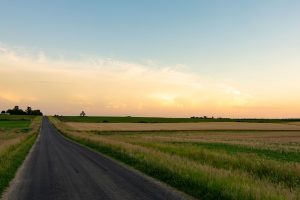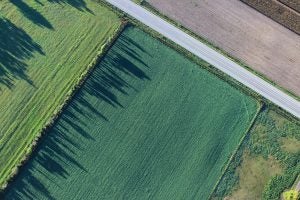Concern over growing acreage in America owned by foreign entities has been increasing — it’s not just about who owns the land, but what the investor’s intentions are. Now, that concern has caught the eye of the Wyoming state lawmakers who have introduced HB88, a bill that aims to end foreign land ownership in the state.
HB88 proposes that: “No foreign government, foreign business or foreign person, or any agent, trustee or fiduciary thereof, shall purchase or otherwise acquire agricultural land in Wyoming. A foreign government, foreign business or foreign person, or any agent, trustee, or fiduciary thereof that owns or holds agricultural land in Wyoming on July 1, 2023, may continue to own or hold the agricultural land but shall not sell or otherwise dispose of the agricultural land to another foreign government, foreign business or foreign person.”
The bill, which was introduced this week and has several co-sponsored in the state house and senate, provides a broad definition of agricultural lands, labeling them as any land located outside the exterior boundaries of any incorporated city or town that is used principally for farming or ranching, cultivation of the soil for the production of crops, production for timber products or grasses for forage, the rearing, feeding, grazing, or management of livestock, a farmstead structure, or other agricultural purposes.
Wyoming isn’t the first state to take this step. Ten U.S. states have already taken steps to restrict and regulate foreign land acquisition. While these states’ restrictions vary, four states have gone as far as prohibiting foreign purchase of any land.
How many acres of U.S. farmland are currently foreign owned?
According to a 2021 report from the U.S. Department of Agriculture, foreign investors owned approximately 40 million acres of U.S. agricultural land spreading across all 50 states — an acerage number that’s nearly doubled between 2010 and 2020. Those lands account for 3.1 percent of all privately held ag land and 1.8 percent of all land in the United States. In Wyoming, over 426,617 acres of the state’s 40 million private lands are foreign-held.

And, while the percentage of foreign-owned acres may seem relatively small, the total value of the land in question has leapt in value and is currently worth about $52.2 billion.
These USDA figures are mandated to comply with the Agricultural Foreign Investment Disclosure Act of 1978. However, scrutiny over these numbers led to a bi-partisan bill in 2017, titled the Food Security is National Security Act of 2017.
The Midwest Center for Investigative Reporting has its own reporting system, allowing individuals to search by county, state, or name.
Who owns this land?
Canadian investors own the largest amount of reported foreign-held agricultural and non-agricultural land. Foreign persons from an additional four countries follow Canada: the Netherlands, Italy, the U.K., and Germany.
The remaining 15.6 million acres, or 38 percent of all reported foreign-held agricultural and non-agricultural acres, are held by various other countries. In 2021, the USDA reported that 383,935 acres were owned by the country.
And, why?
U.S. House Republicans began calling for a federal investigation into foreign ownership and investment in U.S. agricultural land at the end of last year.

In a letter sent to the Government Accountability Office in October, the top Republicans on the U.S. House Agriculture and Oversight committees requested an investigation, noting current efforts to track foreign investment are unreliable and could leave the U.S. vulnerable. The lawmakers questioned whether these foreign investments, including those by China, could pose a national security threat to the U.S.
While cold hard cash appears to be king in many of these land acquisitions, foreign policy has also pushed countries such as Saudi Arabia into purchasing and leasing land in the Southwest. These acquisitions have pushed the state’s already-hard-tapped water resources down and hay prices up with countries such as Saudi and China exporting record high numbers of alfalfa in 2021.
»Related: Inflation, input costs, and drought top concerns for agriculture


